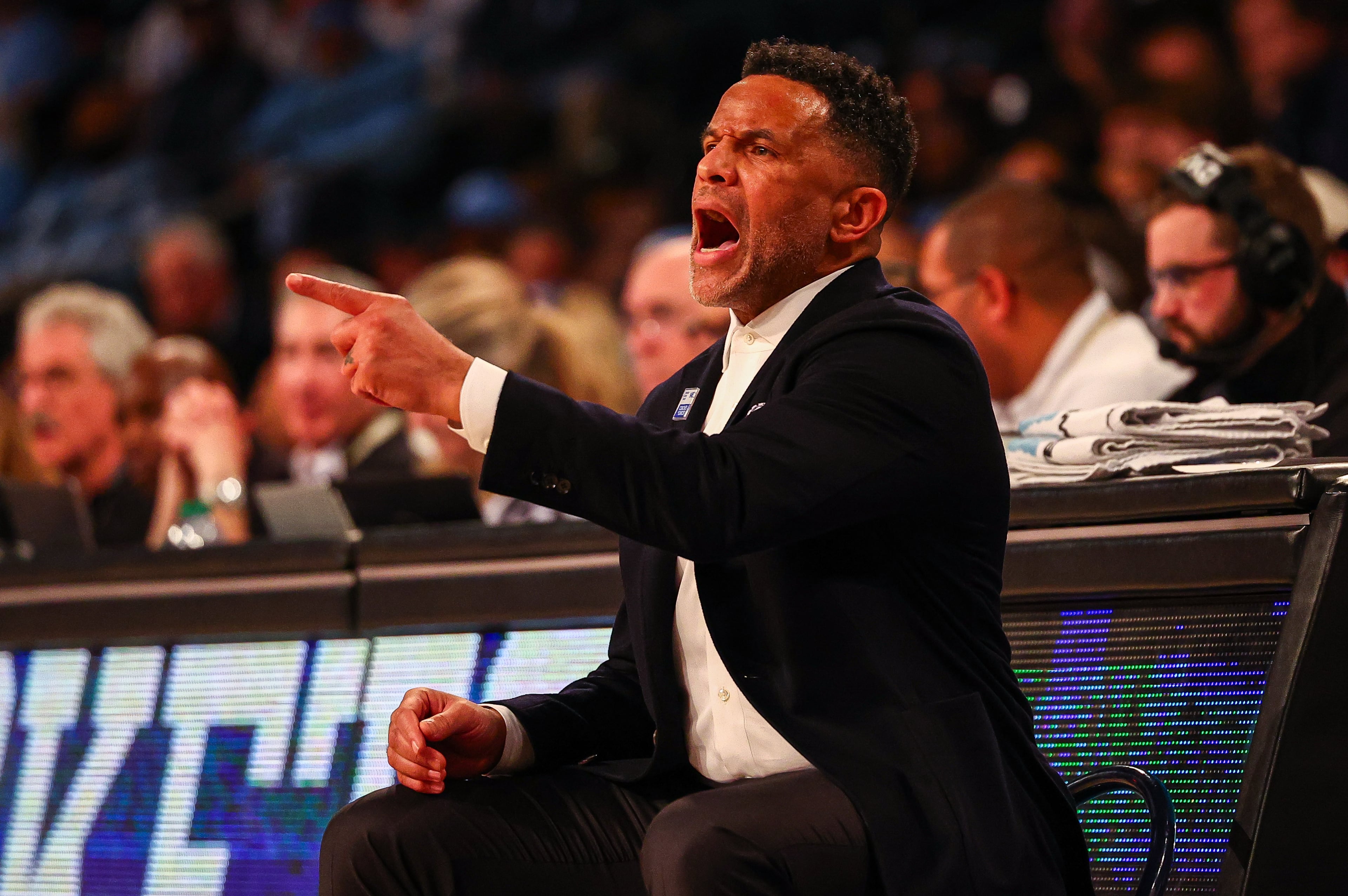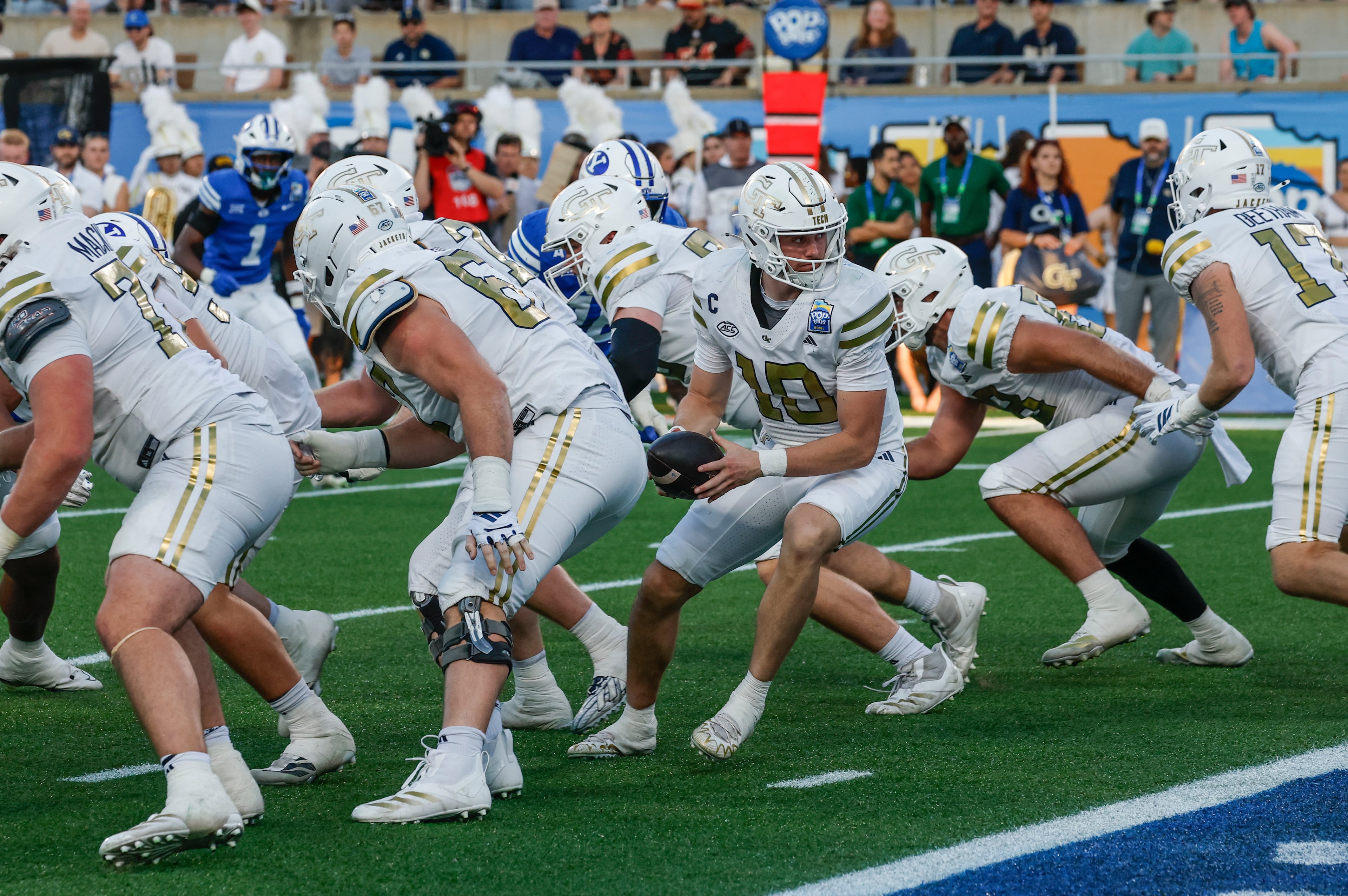Georgia Tech’s five most significant events in 2021

For many Georgia Tech fans, the enduring memory of the 2021 calendar year may be their football team faltering across the autumn. As the most prominent of the athletic department’s 17 varsity teams, it would be understandable.
For better or worse, the Yellow Jackets’ 3-9 record overshadowed a year in which a number of their counterparts achieved historic successes, captured in the athletic department finishing 44th in the Directors’ Cup standings for the 2020-21 academic year, its highest since 2004-05. As the calendar turns to 2022, a look back at the five most significant events for Tech in 2021.
5. Historic season for volleyball
Because of the NCAA pushing back its 2020 tournament to April, coach Michelle Collier’s team made two NCAA Tournaments in the 2021 calendar year. The Jackets qualified for their first NCAA berth since 2009 in the spring, reaching the second round and setting the stage for a historic fall. In that season, Tech challenged for the ACC title, finishing fourth, earned the No. 8 national seed in the NCAA Tournament and reached the Elite 8 for just the second time in team history.
Outside hitter Julia Bergmann was named ACC player of the year, and she and right-side hitter Mariana Brambilla both were chosen first-team All-American, only the second and third players in team history to achieve that status. Tech was ranked eighth in the final poll, tying for its highest-ever season-ending ranking.
In Collier’s eight seasons, the Jackets have transformed from a team that hadn’t made the NCAA Tournament in more than a decade into a nationally competitive outfit and one that, with multiple sellouts in O’Keefe Gymnasium, has carved out a niche within the Tech fan base.
4. $125 million capital campaign ends successfully
In what arguably was the most significant accomplishment of athletic director Todd Stansbury’s tenure, the athletic department completed fundraising in March on its three-year, $125 million capital campaign, far surpassing its goal, with $175.4 million raised in gifts and commitments. That included almost $85 million earmarked for the centerpiece of the Athletics Initiative 2020 campaign, the complete renovation of the Edge/Rice Center, the athletic-department headquarters.
Other projects included a $9 million renovation of the baseball complex, now named the Mac Nease Baseball Park, new locker rooms for the football and women’s basketball teams and three endowed head-coaching positions. Significantly, Stansbury finished fundraising efforts amid the pandemic, when face-to-face meeting was more difficult and committing to a long-term financial gift became a more precarious proposition.
In the midst of that success, though, Tech’s annual budgeting continued to be a challenge, as the department has sought to stretch resources while replenishing a reserve fund that began the fiscal year with a deficit of more than $13 million.
3. Women’s basketball Sweet 16 berth
In her second year, women’s basketball coach Nell Fortner led the Jackets back to the NCAA Tournament for the first time since 2014 and helping Tech advance to the Sweet 16, tying for the farthest advance in team history. The Jackets also tied for third in the ACC in the regular season, the highest that they had ever finished. A highwater point was a seven-game win streak capped by a 71-69 home win over Clemson in which the Jackets were down by nine points with 2:54 left in the game before scoring the final 11 points of the game. The Jackets summoned their resilience again by rallying from a 17-point halftime deficit to Stephen F. Austin to win their first-round NCAA game in overtime.
Forward Lorela Cubaj was named the ACC’s co-defensive player of the year and guard Lotta-Maj Lahtinen earned most improved player of the year. Fortner also was named the league’s coach of the year for her performance and was awarded a two-year extension, keeping her under contract through the 2026-27 season.
The Jackets have built on that progress, ending the calendar year ranked 16th in the AP poll, the team’s second highest ranking ever achieved in that poll. The triumphs included an attention-getting upset of then-No. 3 Connecticut – ending the Huskies’ 240-game winning streak over unranked opponents – and a second consecutive road win over Georgia. Tech had never won in Athens before Fortner’s hire.
2. Men’s basketball ACC championship
In a year in which earning an NCAA Tournament berth was the singular objective, the men’s basketball team exceeded those expectations. Rallying the entire season after losses to Georgia State and Mercer, coach Josh Pastner’s Jackets caught fire at season’s end by winning six games in a row to end the regular season and then two more to win the ACC Championship in March. They beat Florida State in the final for Tech’s first conference title since 1993 and to guarantee Tech’s first NCAA berth since 2010, ending the fourth-longest tournament drought among power-conference teams. Moses Wright and Jose Alvarado, the shining beacons of Pastner’s “get old and stay old” vision, won ACC player of the year and defensive player of the year, respectively, becoming the first pair of teammates to win the two awards since 2012. The season ended dismally, though, as the Jackets lost in the first round to Loyola Chicago with Wright unavailable because of a positive COVID-19 test.
For Pastner, it meant the fulfillment of his five-year plan to get Tech into the tournament for the first time since 2010 and a three-year contract extension, taking him into the 2025-26 season. His team went into 2022 at 6-5, struggling to overcome the losses of Alvarado and Wright.
1. Football team limps to 3-9 record
While much of the rest of the department was hitting high marks, coach Geoff Collins’ team stumbled to a 3-9 record, its third consecutive three-win season. After reaching the halfway point at 3-3 and holding a slight possibility for a 6-6 regular season and the first bowl game for a Collins-led team, the Jackets lost their final six, the last two to Notre Dame and Georgia by a combined 100-0. It was the first time that Tech had lost consecutive games by shutout since 1957. Average home attendance for the institute’s most visible team was the lowest since 1989.
The performance raised fans’ ire and put Collins’ job security at risk, along with that of Stansbury, who has thrown his support behind his coach.
The team’s fates took two more significant hits following the season, as All-American running back Jahmyr Gibbs transferred to Alabama and running backs coach Tashard Choice left Tech for the same position at USC before ultimately landing at Texas. Besides Choice, a top recruiter and talent developer, Collins replaced three coaches and vowed improvement after the season, promising “less branding, more coaching.”



